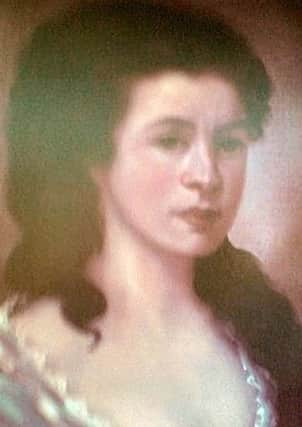Higgins hails MarthaMagee as ‘hidden gem’


Speaking at the National Library in Dublin at the launch of the Hidden Gems and Forgotten People Project - a collaboration of the Federation for Ulster Local Studies and the Federation of Local History Societies - the President said: “Connecting communities to their local areas, keeping alive the knowledge of special places and preserving the memory of the people that have made your communities what they are is such an important contribution to the rootedness, and diversity too, of communities.
“It is not, I believe, an exaggeration to say that the sense of connection to place, to the past, in all its manifestations, and to those memories are vital elements for the quality of our lives and for the wellbeing of our society. They make up an essential part of who we are.”
Advertisement
Hide AdAdvertisement
Hide AdMartha Maria Stewart was born in Lurgan about 1755. In 1780 she married Rev. William Magee, a Presbyterian Minister of First Lurgan, who died in 1800 leaving her dependant on the Presbyterian Widow’s Fund.


Her two sons died in early manhood, one from an accident and the other from rabies during service in the British Army in India.
After inheriting a fortune from her two brothers, both military men, she moved to Dublin. With other charitable bequests totalling £40,000, she left, in 1845, £20,000 to endow a college for the education of the Presbyterian ministry.
After prolonged controversy with the General Assembly, led by Henry Cooke, the trustees established Magee College, Londonderry, in 1865.
Advertisement
Hide AdAdvertisement
Hide AdDespite the donor’s intentions the college accepted all denominations from the start. In 1970 it became an integral part of the New University of
Ulster (now the University of Ulster). She died in Dublin on June 22, 1846.
Dorothy Parke was born in County Londonderry on 29 July 1904. She was a piano student of Ambrose Coviello and a composition student of Paul Corder at the Royal Academy of Music in London, after which she returned to Northern Ireland and settled in Belfast.
She married Douglas Brown, musician and teacher, and was a gifted and highly-regarded piano teacher in Belfast between 1930 and 1960. Among her pupils were Derek Bell and Norma Burroughs.
Advertisement
Hide AdAdvertisement
Hide AdShe wrote extensively for children, composing many songs and piano pieces that were used in musical competitions. Her compositional style is generally in the tradition of Stanford and simpler Vaughan Williams and Herbert Howells; very approachable but of a rather naïve simplicity and with ingenuous harmonies.
Nevertheless, her music is distinctive and always effective; many of her choral and vocal settings in particular, archive a real poignancy and show considerable expressiveness.
She did occasionally use a more advanced idiom, as in her choral settings of Chesterton and Stephens.
Dorothy Parke died in Portrush on February 5, 1990.
More information is available at www.hidden-gems.eu